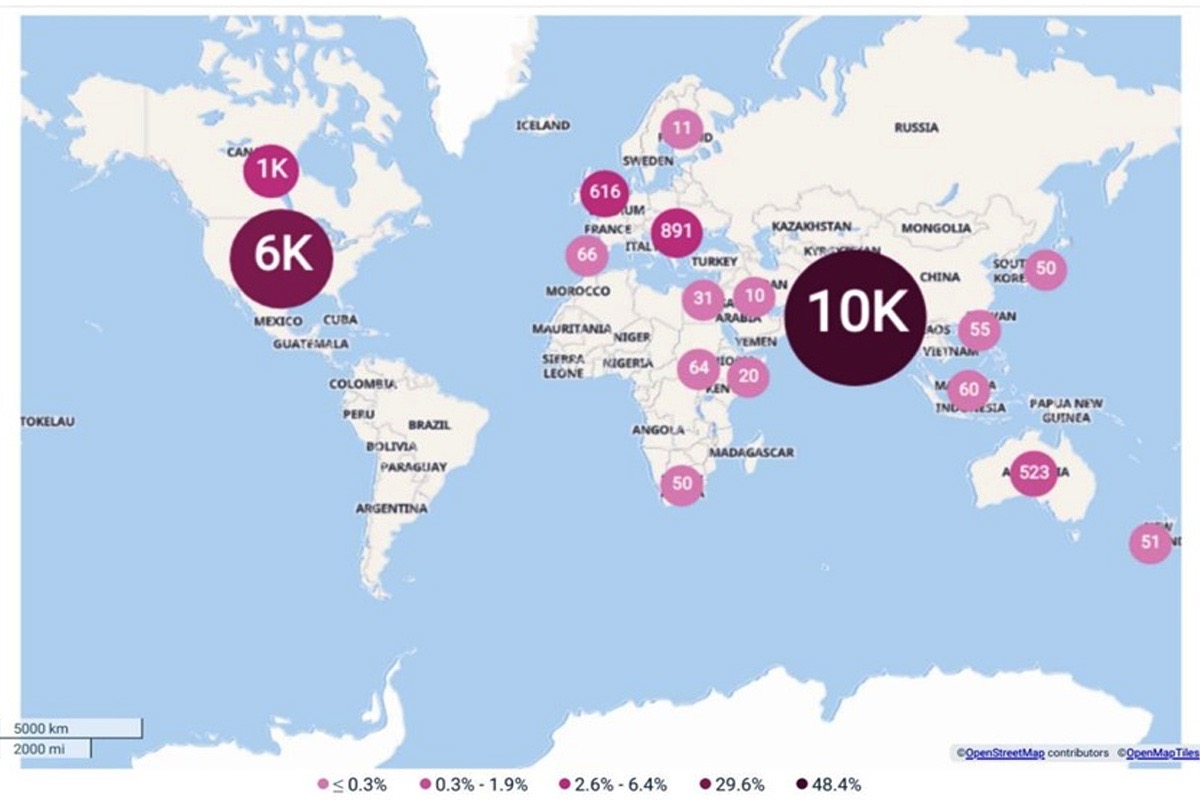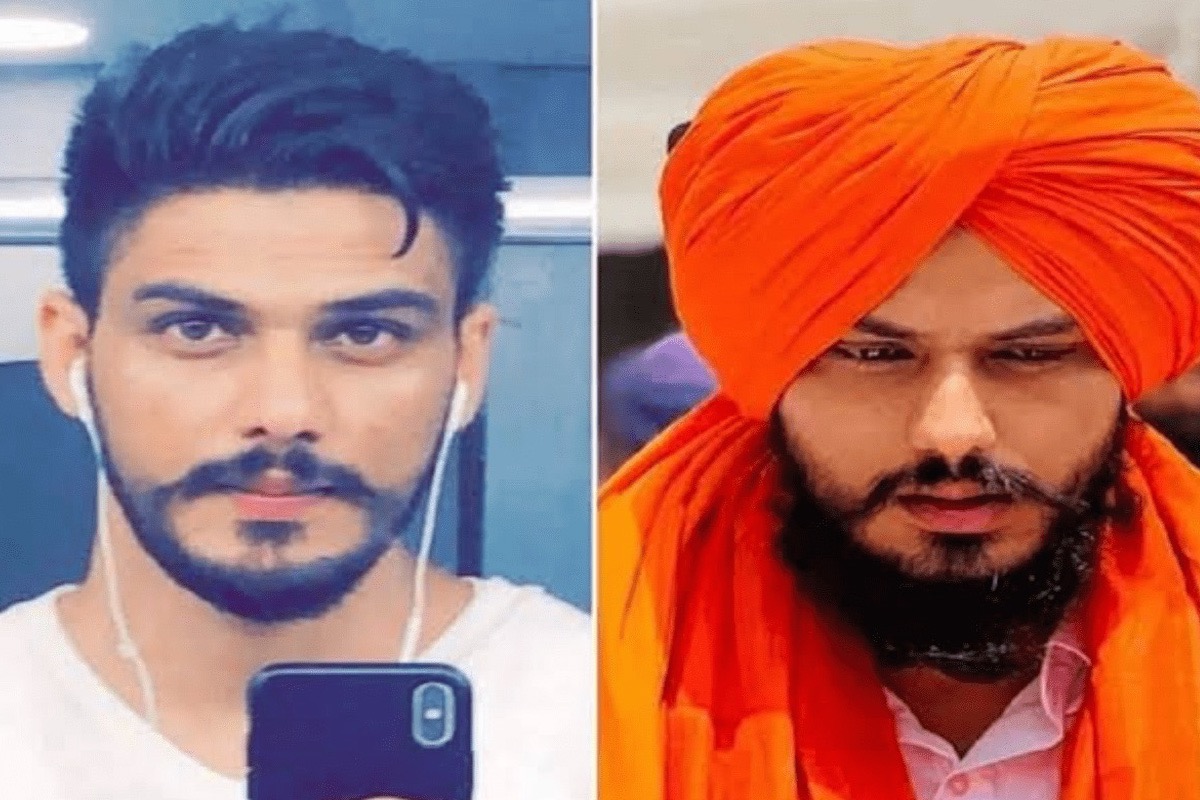An analysis of the social media campaign in support of “fugitive” Khalistan leader Amritpal Singh reveals that West-based anti-India nexus is running a massive coordinated propaganda to defend the former Dubai taxi driver whose men have openly threatened to kill Prime Minister Narendra Modi.
Punjab Police’s two days chase of him and resulting response on social media platforms brought forth what many have been predicting for months now: that is his activities are duly supported by the global pro-Khalistani nexus.
An analysis of tweets reveals the West’s role in pushing forth the anti-India propaganda giving impetus to the Khalistani narrative, with key players of his nexus stationed in Canada, Australia, the United Kingdom, and the United States.
The analysis of tweets in support of Amritpal exposed the nexus fanning the propaganda as part of their larger goal of gaining a foothold in Punjab.
Pro-Amritpal online propaganda campaign involves fake accounts, Khalistani elements, so-called human rights advocates, and politicians from the US, the UK, and Canada – which has emerged as an operational base for Khalistanis. Canadian politicians, in particular, are heavily supporting Amritpal Singh in the garb of human rights violations.
The pro-Amritpal campaign includes thousands of Twitter accounts from Canada and the US, including Canadian MPs Jasraj Singh Hallan and Tim S Uppal and some pro-Khalistani media outlets like Baaz.
BREAKING | Demonstrators in London, protesting “widespread repression in Punjab” according to @theNSYF, have pulled down the Indian flag outside the Indian high commission in the city.
Protests are beginning to occur across the Sikh diaspora as draconian measures hit Punjab. pic.twitter.com/nrNMhGkKKI
— Baaz (@BaazNewsOrg) March 19, 2023
Thousands of accounts like the Toronto Sikhs Kisaan Social Media created during the farm law protests were pressed into action for spreading fake news and fanning anti-India narrative, using hashtags like #AmritpalSingh and #WeStandWithAmritpalSingh.

The analysis found that some of these Twitter accounts were used during the farmers’ protest of 2020, hundreds others were created in just two days with the sole objective of spreading misinformation to provoke common Sikhs.
Of all accounts tweeting #WeStandWithAmritPalSingh, 1,739 accounts were created between March 15 and March 19. Out of this number, 820 accounts were created in just one day, i.e. March 17, a day before the police launched the crackdown against ‘Waris Punjab De’.
The analysis shows the accounts tweeting in support of Amritpal Singh, whose arrested men confessed to the police that they were drug addicts, were part of an intricate Khalistani network, sharing each other’s tweets in order to amplify their anti-India propaganda.
A large part of these accounts have also been previously engaged in anti-India tirade and propelling Khalistani calls to achieve their larger goal – to dent India’s global soft image of “chai and yoga”.
As expected, Pakistan-based anti-India actors also jumped in to play their part, using hashtags like #Amritpal, #WeStandWithAmritpal #Khalistan hashtags. Pakistan Strategic Forum (PSF) used the same #Amritpal and #Khalistan hashtags in an effort to amplify the Khalistani propaganda.
But Pakistan’s involvement is neither new nor surprising. According to Indian intelligence agencies, Amritpal enjoys links with Pakistani spy agency Inter-Services Intelligence (ISI).
Experts raise doubt on suggestions that Pakistan’s ISI may be running the show, arguing that the Islamic country is grappling with an economic crisis and the political turmoil created by former PM Imran Khan. They believe that Islamabad can’t pull off such a high-intensity stunt at this juncture.
The support to Khalistani propagators in western countries is manifested in Sunday’s attack on the Indian High Commission in London and recent attacks on Hindu temples in Australia by these separatists.
By his own admission, Amritpal is a staunch follower of the late militant leader Jarnail Singh Bhindranwale who pushed Punjab into a decade of bloodbath and was responsible for the death of hundreds of Punjabis during the 80s.
He returned to India last year and soon became the head of newly-formed ‘Waris Punjab De’ outfit as part of a larger Khalistani plan to resuscitate the pro-Khalistan movement in India.

















